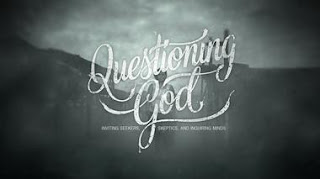Years ago, I built a sandbox for David. Not some little Mr. Turtle sandbox; it was a MANLY sandbox! It measured 8 feet to a side, had seats on all four corners, and held 1750 lbs of sand! I put landscape fabric under it so the worms wouldn't come up through the bottom nor would the earth underneath mix with the sand. I worked hard to build it well and complete it quickly. Then I presented it to David. His eyes glowed! And I went off to my next task.
Within 5 minutes, he was right behind me again. "Daddy, will you come and play with me in the sandbox?" I found myself torn; I felt the tyranny of the list of unfinished tasks I needed to complete. But I also remembered, with a smile, a story my mother told me.
Her firstborn (me!) was bored and asking her what he could do. She built what amounted to a small city out of Lego, brought out some Hot Wheels cars and said, "There you go! Have fun!" Then off she went to finish her vacuuming, or some such task. Sure enough, five minutes later, there I was, asking, "Will you play with me?" She jokingly said to me, "When you grow up and have a family, I hope you have a child just like you!" I thought maybe I could avoid the curse by adoption, but God has a sense of humour, doesn't He?
I learned an important lesson about my son that day: my David treasured my presence in the sandbox far more than my present of the sandbox.
And here I am, so many years later, realizing another, more profound lesson: God feels the same way! He treasures my presence, my time, my communication with Him far more than any present, any financial or physical gift I might bring, anything I can do for Him. Oh sure, if those gifts are given from the heart, He certainly values them. But He doesn't need my resources; they all came from Him in the first place! What He desires is my time with Him, spent talking and listening to Him. He values my fellowship with Him.
Some people view God as being like me with the sandbox; He spent time making something pretty amazing: a beautiful planet, a stunning garden, delicious food, exotic animals. And He placed Adam and Eve in the middle of it, then walked away and left them to figure things out, because He had other important things to get to. As I've written before, this is patently false because the Bible teaches clearly in the book of Genesis, chapter 3, that God had a habit of coming to walk in the garden with Adam and Eve. Think of how nice that would be; the cool of the day, no mosquitoes biting you, no thistles in your bare feet, just the soft grass, the warm air, the fragrance of the flowers ... and God right there so you can ask any question that comes to mind.
Many's the time I wished I could text message God with my questions! Or call Him and hear His voice. Or facetime Him. Especially lately. Instead He chooses to have us use prayer -- a direct hotline straight to His office, as it were. We're just not so crazy about the method because we want a clear answer now. And God often chooses to teach us the answer, rather than just give it to us.
Ever notice how, if you pray for patience, He never gives it to you. Instead He gives you opportunities to learn patience. I've done that with my own children. Rather than give them money for something they want, I give them an opportunity to earn the money they need. Why? Because they value it far more that way, or they learn that it wasn't really that important to them in the first place. And if I'm smart, I devise an opportunity for them to do something with me, so I can have time with them, because I love them and I value the relationship I have with them.
When we lost our David, I had a choice: I could shake my fist at God, blame Him for everything, and turn my back on Him forever. I would still have my grief, I would still feel lost at times, but I would have no purpose nor any comfort. Or I could turn to Him, cling to Him, cry out to Him, knowing He was listening and weeping with me, and have the comfort of His presence and of knowing there was a purpose in all of it, even if I didn't understand it all. How do I know He wept with me? Why wouldn't He? He wept over Jerusalem, and He loves me like a father loves his child. My earthly dad wept with me; why wouldn't my Heavenly Dad?
And here again is the reflection of the intimacy He desires with us; He grieves in our losses, He rejoices in our victories, and He delights in our interaction with Him.
Don't neglect the gifts of your finances and time and strength; the scale with which you measure those out reflects the value you place on what He's accomplished for you. But the next time you get together with Him, really spend some time with Him, like you would like your child to spend with you. Get to know Him. Share with Him in prayer. And listen for Him to respond to you. You'll find it will take your relationship with Him to a whole new level.





